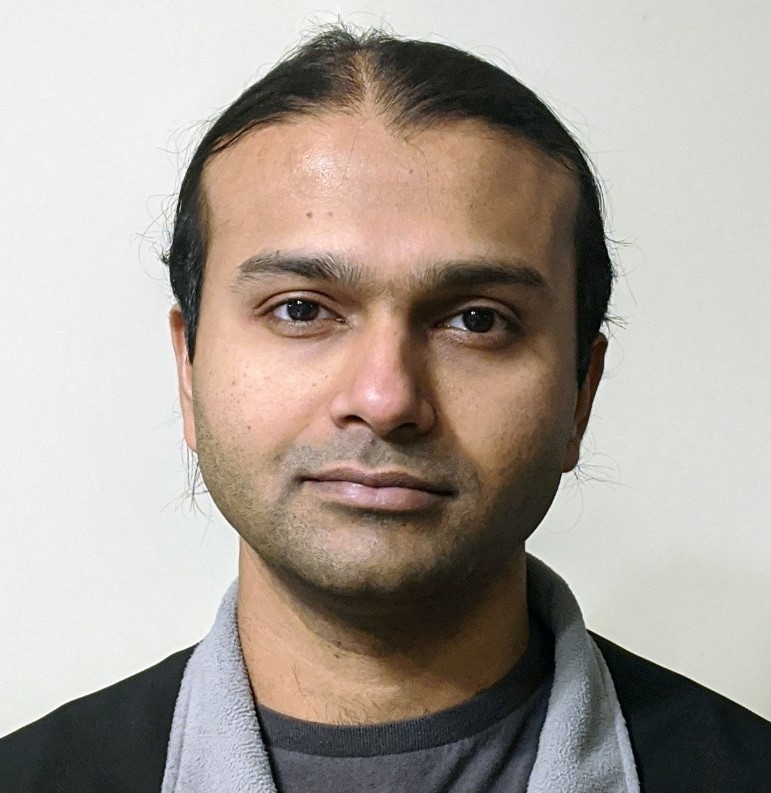What is celiac disease?
Celiac disease, also called gluten-sensitive enteropathy, is an immune disorder that causes damage to the small intestine.[1] Although celiac disease has some symptoms in common with gluten sensitivity and wheat allergies, only celiac disease damages the gastrointestinal (GI) tract. In addition to causing a range of GI symptoms, celiac disease can also affect multiple organ systems in the body.[2] Although celiac disease is sometimes considered to be an autoimmune disorder, based on the production of autoantibodies and other features associated with autoimmune disease,[3] it is not clear whether autoimmunity plays a major role in damaging the small intestine.[4]
What are the main signs and symptoms of celiac disease?
Damage to the small intestine caused by celiac disease can lead to an array of symptoms in different individuals.[5] The main symptoms can include any of the following:
- Abdominal pain
- Nausea or vomiting
- Gas
- Constipation
- Chronic diarrhea
- Abnormal stools
- Lactose intolerance
People with celiac disease may also experience symptoms in other parts of the body, including the following:
- Fatigue
- Bone or joint pain
- Mental health problems, such as depression or anxiety
- Infertility
- Delayed menstrual cycle
- Nervous system problems, such as impaired balance, headaches, peripheral neuropathy, or seizures
- Dermatitis herpetiformis (DH), an itchy, blistering skin rash These other symptoms can be due to micronutrient deficiencies from malabsorption (caused by damage to the small intestine) or, in the case of DH, an autoimmune reaction to gluten ingestion.
How is celiac disease diagnosed?
Since celiac disease has symptoms that are common with other digestive disorders such as irritable bowel syndrome, a physical exam alone isn’t enough to diagnose the disease. Doctors will also review the patient’s family medical history to determine whether anybody has been diagnosed with celiac disease. Genetic testing is also often performed to look for gene variants linked to increased disease risk. The only way to confirm a diagnosis of celiac disease is through the detection of specific antibodies in the blood and confirmation of damage to villi (tiny nutrient-absorbing structures) in the small intestine through a biopsy.[5] It is important to note that a positive diagnosis is only possible after gluten exposure for several weeks before the test. People on gluten-free diets may be advised by their physician to start a “gluten challenge,” which involves several weeks of continuous gluten exposure, since elimination of gluten from the diet can lead to a false-negative diagnosis.[6]
What are some of the main medical treatments for celiac disease?
Since celiac disease is triggered by gluten, the main treatment is a gluten-free diet. Eliminating gluten exposure allows the small intestine to heal, improving symptoms over time. Although symptoms can improve within days to weeks after starting a gluten-free diet, some, such as dermatitis herpetiformis, are not resolved for up to 2 years. Steroids and other immunosuppressants can also be used to help relieve symptoms while the small intestine heals.
Have any supplements been studied for celiac disease?
The main supplements recommended for celiac disease are micronutrients, since damage to the small intestinal reduces their absorption. Deficiencies in vitamin B6, vitamin B12, iron, folic acid, vitamin D, copper, zinc, and magnesium are common in people with celiac disease.[7] Gluten-free foods also tend to provide lower levels of magnesium, possibly warranting supplementation if insufficient levels are obtained through the diet after small intestinal damage has healed.[8] Probiotics have also been studied, since celiac disease is associated with changes in the gut microbiome.[9] Omega-3 fatty acid supplements have additionally been researched for their ability to reduce inflammation in celiac disease.[10]
How could diet affect celiac disease?
Since celiac disease is triggered by gluten exposure, it is essential to eliminate gluten from the diet. This rules out any foods that contain wheat, barley, rye, triticale (a cross between wheat and rye), kamut, or farro; this includes semolina, couscous, most cereals, pasta, beers, breads, crackers, wraps, and baked goods. People with celiac disease also need to be careful to avoid hidden exposure to gluten, which can occur with processed foods. For example, processed foods based on corn or rice (neither of which contain gluten) could contain trace amounts of contaminating gluten if they were produced in factories that also make wheat products.
Are there any other treatments for celiac disease?
Gluten-free diets can be tough to adhere to, creating a large interest in non-dietary therapies. Drug therapies that target various mechanisms of the disease process are under development. Some promising candidates are currently undergoing clinical trials, but none have been approved so far.[11]
What causes celiac disease?
Celiac disease is caused by an abnormal immune reaction to gluten. Consuming gluten triggers destruction of villi, tiny finger-like projections lining the small intestine that absorb nutrients from food. People who are genetically susceptible have particular variants of the genes encoding major histocompatibility complex (MHC) class II molecules, which play a role in the sensing of foreign proteins by the immune system. The MHC class II genes HLA-DQ2 or HLA-DQ8 bind to gluten-derived peptides, triggering the immune response that causes intestinal damage. Although HLA-DQ2 or HLA-DQ8 seem to be required to develop the disease, they are not sufficient, since only 1% of the population has celiac disease, in spite of 40% having HLA-DQ2 or HLA-DQ8.[12]
Examine Database: Celiac Disease
Research FeedRead all studies
In this meta-analysis of observational studies, vitamin D levels were lower and vitamin D deficiency was more common in children with celiac disease compared to children without celiac disease.
Frequently asked questions
Celiac disease, also called gluten-sensitive enteropathy, is an immune disorder that causes damage to the small intestine.[1] Although celiac disease has some symptoms in common with gluten sensitivity and wheat allergies, only celiac disease damages the gastrointestinal (GI) tract. In addition to causing a range of GI symptoms, celiac disease can also affect multiple organ systems in the body.[2] Although celiac disease is sometimes considered to be an autoimmune disorder, based on the production of autoantibodies and other features associated with autoimmune disease,[3] it is not clear whether autoimmunity plays a major role in damaging the small intestine.[4]
Damage to the small intestine caused by celiac disease can lead to an array of symptoms in different individuals.[5] The main symptoms can include any of the following:
- Abdominal pain
- Nausea or vomiting
- Gas
- Constipation
- Chronic diarrhea
- Abnormal stools
- Lactose intolerance
People with celiac disease may also experience symptoms in other parts of the body, including the following:
- Fatigue
- Bone or joint pain
- Mental health problems, such as depression or anxiety
- Infertility
- Delayed menstrual cycle
- Nervous system problems, such as impaired balance, headaches, peripheral neuropathy, or seizures
- Dermatitis herpetiformis (DH), an itchy, blistering skin rash These other symptoms can be due to micronutrient deficiencies from malabsorption (caused by damage to the small intestine) or, in the case of DH, an autoimmune reaction to gluten ingestion.
Since celiac disease has symptoms that are common with other digestive disorders such as irritable bowel syndrome, a physical exam alone isn’t enough to diagnose the disease. Doctors will also review the patient’s family medical history to determine whether anybody has been diagnosed with celiac disease. Genetic testing is also often performed to look for gene variants linked to increased disease risk. The only way to confirm a diagnosis of celiac disease is through the detection of specific antibodies in the blood and confirmation of damage to villi (tiny nutrient-absorbing structures) in the small intestine through a biopsy.[5] It is important to note that a positive diagnosis is only possible after gluten exposure for several weeks before the test. People on gluten-free diets may be advised by their physician to start a “gluten challenge,” which involves several weeks of continuous gluten exposure, since elimination of gluten from the diet can lead to a false-negative diagnosis.[6]
Since celiac disease is triggered by gluten, the main treatment is a gluten-free diet. Eliminating gluten exposure allows the small intestine to heal, improving symptoms over time. Although symptoms can improve within days to weeks after starting a gluten-free diet, some, such as dermatitis herpetiformis, are not resolved for up to 2 years. Steroids and other immunosuppressants can also be used to help relieve symptoms while the small intestine heals.
The main supplements recommended for celiac disease are micronutrients, since damage to the small intestinal reduces their absorption. Deficiencies in vitamin B6, vitamin B12, iron, folic acid, vitamin D, copper, zinc, and magnesium are common in people with celiac disease.[7] Gluten-free foods also tend to provide lower levels of magnesium, possibly warranting supplementation if insufficient levels are obtained through the diet after small intestinal damage has healed.[8] Probiotics have also been studied, since celiac disease is associated with changes in the gut microbiome.[9] Omega-3 fatty acid supplements have additionally been researched for their ability to reduce inflammation in celiac disease.[10]
Since celiac disease is triggered by gluten exposure, it is essential to eliminate gluten from the diet. This rules out any foods that contain wheat, barley, rye, triticale (a cross between wheat and rye), kamut, or farro; this includes semolina, couscous, most cereals, pasta, beers, breads, crackers, wraps, and baked goods. People with celiac disease also need to be careful to avoid hidden exposure to gluten, which can occur with processed foods. For example, processed foods based on corn or rice (neither of which contain gluten) could contain trace amounts of contaminating gluten if they were produced in factories that also make wheat products.
Gluten-free diets can be tough to adhere to, creating a large interest in non-dietary therapies. Drug therapies that target various mechanisms of the disease process are under development. Some promising candidates are currently undergoing clinical trials, but none have been approved so far.[11]
Celiac disease is caused by an abnormal immune reaction to gluten. Consuming gluten triggers destruction of villi, tiny finger-like projections lining the small intestine that absorb nutrients from food. People who are genetically susceptible have particular variants of the genes encoding major histocompatibility complex (MHC) class II molecules, which play a role in the sensing of foreign proteins by the immune system. The MHC class II genes HLA-DQ2 or HLA-DQ8 bind to gluten-derived peptides, triggering the immune response that causes intestinal damage. Although HLA-DQ2 or HLA-DQ8 seem to be required to develop the disease, they are not sufficient, since only 1% of the population has celiac disease, in spite of 40% having HLA-DQ2 or HLA-DQ8.[12]
References
- ^Taylor AK, Lebwohl B, Snyder CL, Green PHRCeliac DiseaseGeneReviews.(2008-07)
- ^Laurikka P, Kivelä L, Kurppa K, Kaukinen KReview article: Systemic consequences of coeliac disease.Aliment Pharmacol Ther.(2022-Jul)
- ^Lundin KE, Wijmenga CCoeliac disease and autoimmune disease-genetic overlap and screening.Nat Rev Gastroenterol Hepatol.(2015-Sep)
- ^Dunne MR, Byrne G, Chirdo FG, Feighery CCoeliac Disease Pathogenesis: The Uncertainties of a Well-Known Immune Mediated Disorder.Front Immunol.(2020)
- ^Catassi C, Verdu EF, Bai JC, Lionetti ECoeliac disease.Lancet.(2022-06-25)
- ^Barakauskas VE, Lam GY, Estey MPDigesting all the options: laboratory testing for celiac disease.Crit Rev Clin Lab Sci.(2014-Dec)
- ^Wierdsma NJ, van Bokhorst-de van der Schueren MA, Berkenpas M, Mulder CJ, van Bodegraven AAVitamin and mineral deficiencies are highly prevalent in newly diagnosed celiac disease patientsNutrients.(2013 Sep 30)
- ^Caruso R, Pallone F, Stasi E, Romeo S, Monteleone GAppropriate nutrient supplementation in celiac disease.Ann Med.(2013-Dec)
- ^Cristofori F, Indrio F, Miniello VL, De Angelis M, Francavilla RProbiotics in Celiac Disease.Nutrients.(2018-Nov-23)
- ^Costa A, de Brito GAPAerobic Exercise Associated with Fish Oil Supplementation Decreases C-Reactive Protein and Interleukin-6 in Celiac Disease Patients.J Nutr Metab.(2022)
- ^Dieckman T, Koning F, Bouma GCeliac disease: New therapies on the horizon.Curr Opin Pharmacol.(2022-10)
- ^Koning FPathophysiology of celiac disease.J Pediatr Gastroenterol Nutr.(2014-Jul)
Examine Database References
- Fatigue Symptoms - Ciacci C, Peluso G, Iannoni E, Siniscalchi M, Iovino P, Rispo A, Tortora R, Bucci C, Zingone F, Margarucci S, Calvani ML-Carnitine in the treatment of fatigue in adult celiac disease patients: a pilot studyDig Liver Dis.(2007 Oct)






